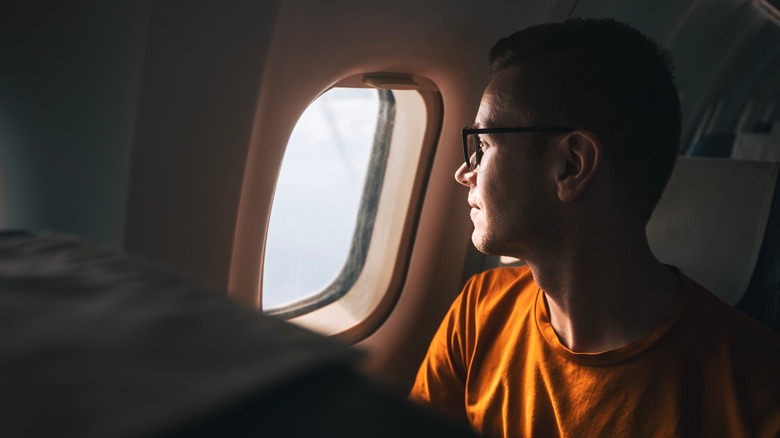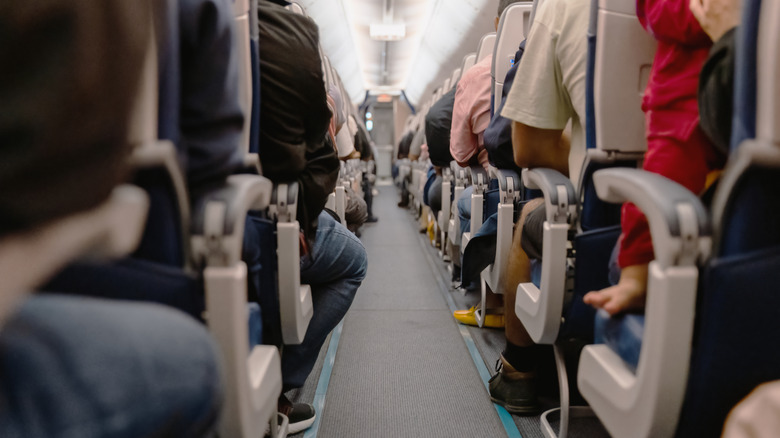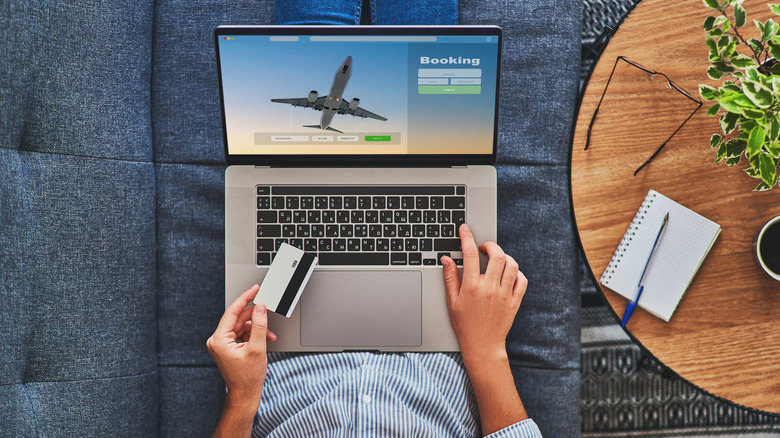Airlines Could Be Charging You Extra For Flying Solo (And Here's How To Avoid It)
In May 2025, Thrifty Traveler discovered that the three largest U.S. airlines (Delta, United, and American) had started charging solo travelers more than travelers flying with one or more other passengers. It appeared that, by using "fare buckets" in which certain fares types were only available to passengers flying in groups of two or more, as well as higher price segmentation aimed toward passengers searching for single seats, these airlines were charging a premium to ride solo, and no one knew how long it had been going on for.
The most extreme price difference Thrifty Traveler reported was on a one-way flight from Chicago O'Hare (ORD) to Lexington (LEX), in which both American and United were charging $214 per seat for individual bookings versus $108 per seat ($215 total) for tandem seat bookings. That's essentially twice the price for one seat versus two! Several major news outlets claimed to have queried the airlines about the uptick in solo pricing, but all three carriers refrained from providing direct comments. The only two things reporters were able to confirm, as noted in The Washington Post, was that the pricing structure wasn't new and that American had apparently been the first to utilize it.
The good news? The pricing upcharge for traveling solo appeared not to be universal across routes, nor have other airlines (such as Southwest, Alaska, or JetBlue) followed this practice. USA Today also reported that, since Thrifty Traveler's original article debuted, both Delta and United seem to have nixed their solo pricing rules in the face of customer backlash. But there's no guarantee things will remain this way, so it's best to stay savvy on your solo searches from here on out.
How to check whether you're being overcharged as a solo traveler
It's already hard enough finding the best value on lodging for a solo trip. But based on the analysis run by Thrifty Traveler, predicting whether or not a flight you're looking up is charging more for solo seats is pretty straightforward, and you can always verify your suspicions easily by checking the price of one seat versus two seats on the same flight before making the choice whether or not to book. Better yet, conduct your search using a comparison tool, like Google Flights or ITA Matrix, to expose discrepancies across a panel of airlines. Again, at this point only American Airlines appears to be charging the fare difference toward single travelers (though to the carrier's credit, it's adding a free, game-changing upgrade that could change how you fly in 2026). Overall, it's best to stay vigilant across the board for the time being.
Another way to check if airlines are charging a difference in fares is to check each fare type's fine print. United clarified its fare difference on that Chicago to Lexington route in the fare rules: Searching for two or more seats opened up a "discount coach" fare type, which explained in a collapsible section titled "Accompaniment restrictions" that those booking this fare "Must be accompanied on all sectors in same compartment by at least 1 adult 15 or older." This restriction didn't apply to more expensive tickets for solo travelers.
How to avoid being charged more as a solo traveler
Fares and fare rules are something you can confirm on your own, as they are visible both on the airline sites and third-party search engines. But if you're still concerned or would rather trust your search to a second set of eyes, you can always opt to book through a trusted travel advisor or flight deal service. It's also useful to note that, when Thrifty Traveler concluded its initial report, it had found that the fare disparities were only occurring on one-way domestic flights — round-trip and international bookings appeared to be charging solo travelers the same as doubles. It was initially speculated that this was being done as a measure to target business travelers charging fare to their company cards, the kind of folks most likely to be booking one-way, mid-week trips. The logic given is that they wouldn't mind a higher fare charge since they wouldn't ultimately be paying the difference.
It could also be a tactic to increase airline sales — after all, a round-trip booking is literally two flights for one. Of course, if your travel plans don't require a return and you're ineligible for a discount (some airlines offer cheaper fares if you're traveling for a funeral, for instance), you may get hit by the same "business traveler" penalty. If not, you now have all the more reason to buy round-trip fare as a solo traveler from the get-go, assuming doing so fits with your travel plans.


